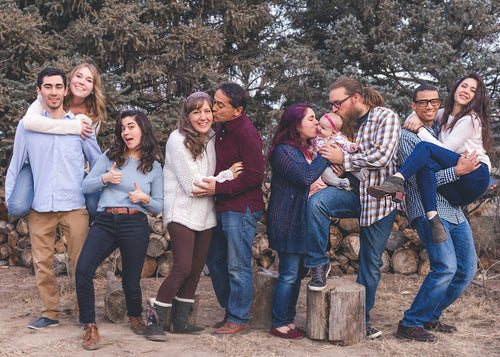
This is What The Bible Says About Tattoos
Matthew BellShare
Tattoos have become increasingly popular in recent years, prompting many Christians to wonder if they are acceptable or if Scripture has something to say about them. While the Bible doesn’t provide a straightforward answer, there are verses and principles that offer guidance. Let’s dive into Scripture to better understand the biblical perspective on tattoos, focusing on themes like honoring God, discernment, and intention.
1. Examining Leviticus 19:28
The primary verse often discussed when it comes to tattoos is Leviticus 19:28, which says:
“Do not cut your bodies for the dead or put tattoo marks on yourselves. I am the Lord.”
This verse is a part of the Old Testament laws given to the Israelites. At that time, marking or cutting the body was often tied to pagan rituals or mourning practices. God wanted His people to be distinct, set apart from the customs of other nations.
Some Christians interpret this verse as a prohibition against tattoos, while others believe it was specific to the cultural context of ancient Israel and doesn’t apply to tattoos today, especially if they aren’t tied to pagan practices. As New Testament believers, we are not under the Old Testament law but rather guided by the principles of Christ and the Holy Spirit.

2. Honoring Our Bodies as Temples of the Holy Spirit
Another important principle to consider is found in 1 Corinthians 6:19-20, which says:
“Do you not know that your bodies are temples of the Holy Spirit, who is in you, whom you have received from God? You are not your own; you were bought at a price. Therefore, honor God with your bodies.”
Our bodies are temples, meant to honor God. Some interpret this as a reminder to consider how tattoos, as well as other lifestyle choices, affect our bodies and our witness. The key question here is intention: Will the tattoo honor God, or is it motivated by something else?
3. Discernment and Intent: Why Get a Tattoo?
In Christianity, intention is often as important as action. If someone chooses to get a tattoo, it’s essential to ask, “Why am I doing this?” The Bible calls us to glorify God in everything we do (1 Corinthians 10:31). So, if a tattoo is intended to express faith, commemorate a meaningful verse, or serve as a reminder of God’s love, it might align with the desire to honor God.
On the other hand, tattoos that promote negative messages, idolize something other than God, or draw attention to self over glorifying Him can conflict with biblical values.

4. Freedom in Christ and Matters of Personal Conviction
Romans 14 discusses how believers have freedom in Christ but are also called to consider their actions and personal convictions. Verse 23 states:
“But whoever has doubts is condemned if they eat, because their eating is not from faith; and everything that does not come from faith is sin.”
For some Christians, getting a tattoo may be a matter of personal conviction. If it causes doubts or doesn’t feel right, it may not be the best choice. Similarly, if a tattoo is a personal expression of faith and aligns with one’s beliefs, it may not be an issue. Paul emphasizes that believers should act according to their convictions and respect others’ decisions on non-essential matters.
5. Being a Witness to Others
Our lives are a testimony to those around us, and as Christians, we’re called to live in a way that reflects God’s love and grace. If a tattoo could potentially cause others to stumble or misinterpret your faith, it’s worth considering its impact on your witness (Romans 14:13).
Conclusion: A Prayerful Decision

The Bible doesn’t explicitly prohibit or endorse tattoos. Instead, it provides principles about honoring God with our bodies, acting in faith, and respecting personal convictions. For Christians considering a tattoo, it’s wise to seek God’s guidance, pray for discernment, and evaluate the reasons behind the choice. By approaching the decision thoughtfully and prayerfully, you can ensure that whatever you choose, you’re doing it in a way that glorifies God and aligns with your faith.


















































